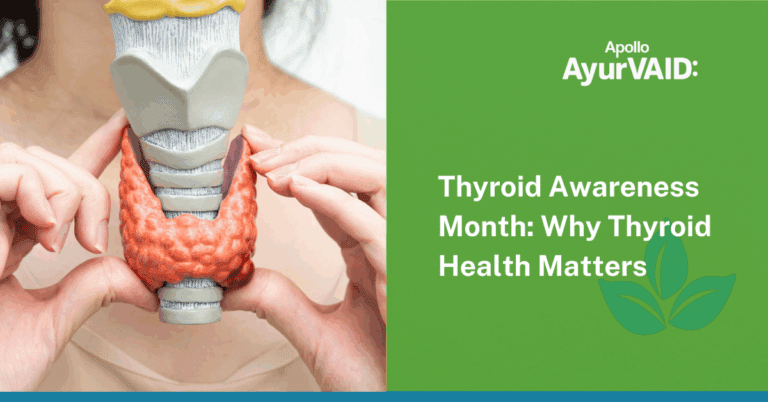Introduction
Polycystic ovary syndrome (PCOS) can feel overwhelming — it affects your periods, your hormones, your weight and energy. In Ayurveda, we see this as a weakening of your body’s digestive energy (Agni), a buildup of harmful waste (Ama), and an imbalance in the body’s tissues that can impact your nourishment and reproductive health. The good news is that gentle, personalised changes in what and how you eat can help rekindle your Agni, clear Ama, and support healthy fat metabolism — that’s the heart of an Ayurveda diet plan for PCOS. Alongside this, practical guidance about foods to avoid with PCOS, a sustainable PCOS diet plan to lose weight, or a fertility-focused PCOS diet plan to get pregnant can all be part of a caring, step-by-step approach to help you feel more in control and hopeful about your health.

Core Ayurveda principles
For everyday eating, Ayurveda recommends simple, nourishing and wholesome foods — Yava (barley) and millets, protein-rich pulses such as Mudga (green gram/mung) and Rajmas (black gram/rajma), low-glycaemic fruits like Amalaki (Indian gooseberry), guava and apple, and healthy sources of fat such as Narikela (coconut) and seeds — Tila (sesame), flax (Atasi), sunflower and pumpkin seeds; it also highlights digestion-kindling spices and condiments like Pippali (long pepper), Jiraka (cumin), Hingu (asafoetida) and Lasuna (garlic), and gentle dairy such as Takra (buttermilk) when tolerated — together these support Agni (digestive fire), reduce Ama (metabolic toxins) and help balance Kapha–Medas (Kapha–fat).
Avoid the culprits that worsen PCOS: packaged/ready-to-eat and preservative-filled foods, sugary and highly processed snacks, and heavy deep-fried items—in short, choose freshly cooked, warm, lightly spiced meals prepared by baking, grilling, boiling, or steaming rather than deep-frying to prevent Ama and support weight and hormonal balance.
Evidence-based dietary pillars
In Ayurveda we see PCOS as a problem that often begins with weakened Agni (digestive/metabolic fire) and the build-up of sticky Ama (metabolic toxins) with excess Kapha–Meda (Kapha–fat), so the first aim of treatment is to restore digestion and prevent Ama by choosing foods that are warm, light and nourishing — exactly the kinds of whole, low-glycaemic ingredients that modern trials show help women with PCOS.
Low-Glycaemic (low-GI/low-GL) dietary patterns improve insulin sensitivity, lower fasting insulin, and favourably affect lipids and waist measures — outcomes that Ayurveda achieves by restoring Agni and clearing Ama with millet/whole-grain-based meals, pulses, cooked vegetables, and digestion-kindling spices (cumin, pippali, and turmeric).
When weight loss is needed, a modest reduction of 5–10% of body weight (achieved through gentle calorie management plus sustainable food composition — higher fibre, adequate protein, low-GI carbs) often restores ovulation and metabolic health; Ayurveda Pathya (wholesome dietary guidance) supports this by promoting satiety, stable blood sugar, and gradual fat metabolism rather than sudden, harsh restrictions. Importantly, dietary choices also affect fertility: meta-analyses show that low-carbohydrate, low-GI, and controlled-energy diets increase ovulation rates and improve clinical pregnancy outcomes—which fits Ayurveda’s approach of combining diet, lifestyle, and targeted therapies to rebalance Rasa-Rakta-Artava srotas (nutritional, circulatory, and reproductive channels) and create a fertile internal environment.
Contemporary Ayurveda reviews and clinical reports likewise emphasise individualised Pathya (diet), the avoidance of Ama-promoting processed and sugary foods, and the supportive role of spices and fermented foods when tolerated—a practical bridge between classical wisdom and the low-GI, behaviour-focused strategies shown to work in trials.
Practical Ayurveda meal plan principles
The following is a generalised meal plan: This can be tailored based on individual needs and responses.
Morning
- Warm water with a slice of lemon or a teaspoon of spices (cumin/ginger/black pepper) if tolerated— to stimulate Agni.
- Breakfast: Low-GI porridge (millet/daliya/steel-cut oats) with a handful of soaked nuts and seeds; add cinnamon or cardamom.
Midday
- Mid-morning snack: a low-GI fruit (apple, pear, or berries) or roasted chana.
- Lunch (main meal): warm, cooked whole grains (brown rice, millets), dals/legumes, plenty of cooked seasonal vegetables, a tablespoon of ghee or a small amount of cold-pressed oil, and a fresh salad (cucumber, carrot) with lemon. Include spices that kindle digestion: turmeric, coriander, cumin, and fennel.
Evening
- Light dinner: khichdi (grain + dal), vegetable stew, or millet dosa — eat at least 2–3 hours before sleep. Avoid heavy fried foods and late-night eating, which increase Kapha/Ama accumulation.
General composition
- Emphasise fibre, protein, and low-GI carbohydrates; moderate healthy fats (nuts, seeds, and fish if non-vegetarian); and small portions of curd or buttermilk when tolerated.
Foods to emphasise
- Whole grains: millets, quinoa, brown rice (not polished white rice).
- Pulses & legumes: moong, masoor, and chickpeas (soaked and well-cooked).
- Vegetables: non-starchy varieties (bottle gourd, leafy greens, broccoli, beans).
- Fruits: low-GI fruits—berries, apples, pears, cherries, and grapefruit—eaten whole (not juiced).
- Spices and herbs: ginger, turmeric, cinnamon, fenugreek (seeds), and cumin — many support glycaemic control and digestion.
Foods to avoid with PCOS
- Refined carbohydrates and sweets (white bread, pastries, sugar-sweetened beverages) — these spike insulin and worsen hyperandrogenism.
- Avoid excessive consumption of high-GI starchy staples such as large portions of white rice and white potatoes, as well as fruit juices.
- Highly processed, trans-fat-rich, and deep-fried foods should be avoided.
- Overconsumption of high-fat, energy-dense desserts— a moderated approach is safer for long-term weight and metabolic management. (These are the usual items listed under foods to avoid with PCOS in trials and reviews.)
PCOS diet plan to lose weight
In Ayurveda, the first step in a weight-loss-focused plan is to rekindle Agni (digestive fire) and prevent sticky Ama (metabolic toxins) that slow metabolism—this is done with a personalised Pathya (wholesome diet) of warm, easily digested meals, millet/whole-grain bases, well-cooked pulses, plenty of non-starchy vegetables, and digestion-kindling spices (cumin, pippali, turmeric) to support gradual fat metabolism and reduce Kapha-Meda (Kapha-fat). Clinical evidence shows modest, sustained weight loss (often 5–10%) reliably improves ovulation, insulin sensitivity and metabolic markers in PCOS, so combining Ayurvedic dietary principles with a low-glycaemic, calorie-managed eating pattern and behaviour support gives the best chance of safe, durable weight reduction and symptom improvement.
PCOS diet plan to get pregnant
When fertility is the goal, Ayurveda focuses on clearing Ama, strengthening Rasa–Rakta–Artava srotas (nutrition, blood and reproductive channels) and restoring rhythmic Agni through a nourishing, ovulation-supportive diet — think steady low-GI carbohydrates (millets, barley), adequate protein, micronutrient-rich greens and fruits (amla, berries) and small amounts of easily digested fermented dairy if tolerated — alongside lifestyle measures (sleep, stress reduction, gentle exercise). Modern reviews and clinical studies echo this: dietary interventions that improve insulin resistance and reduce excess weight or body fat are associated with higher ovulation and pregnancy rates in PCOS, so an individualised Ayurveda medication with evidence-based low-GI, energy-managed strategies provides a compassionate, practical roadmap toward improving fertility.






